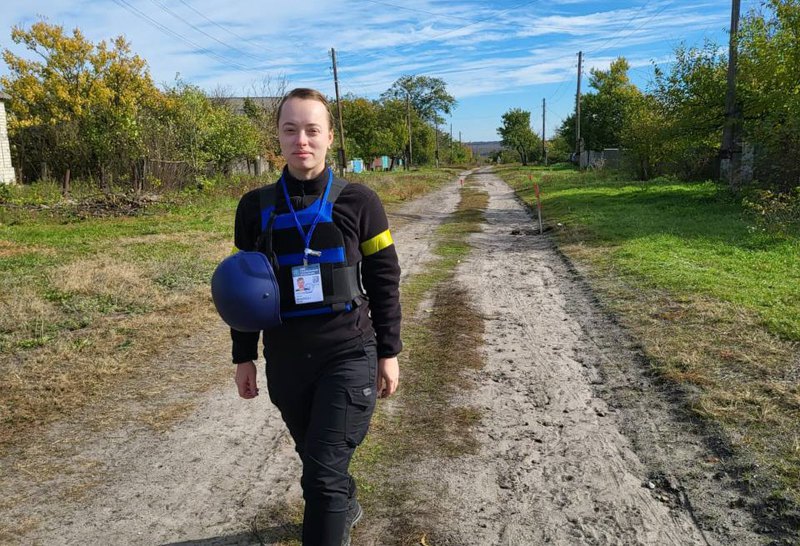
“Russians have been committing crimes of sexual violence since 2014”
How many conflict-related sexual violence (CRVS) have been recorded in Ukraine so far?
Updated statistics are published monthly. And we are not speaking strictly about crimes, but about incidents of conflict-related sexual violence. I always explain why we use this counting method: one person may be the victim of several different incidents of CRSV, and these are treated as separate criminal episodes. That is why we count by episodes.
As of the beginning of July this year, we had recorded 368 cases of conflict-related sexual violence. Of these, 136 involve men, 232 involve women, and 19 involve minors.
Are we speaking specifically about crimes committed against civilians during the occupation?
Yes, and I would like to clarify: we are only speaking about crimes committed against civilians during the occupation. Cases of sexual violence against military personnel in captivity and civilian detainees are categorised separately. These data are not disclosed until the end of martial law.
It is important to note that such military personnel are also an important source of information. We work with them systematically after exchanges. In some cases, they provide new reports of crimes committed by Russian forces, both against themselves and against civilians with whom they were held.
In terms of overall dynamics, these crimes have obviously been committed not only since 2022, but since 2014, when Russian aggression began. Can we trace the dynamics of such cases from 2014 to 2022?
Unfortunately, I must be frank: we lost a great deal of time because this area was not prioritised from 2014 onwards. I speak as someone who has been working since 2017 on crimes committed by Russian forces during the occupation, particularly in Donetsk Region. Even at that time, we were already receiving reports of various crimes in the occupied territories.
I deeply regret the time lost between 2014 and 2022. The department at the Office of the Prosecutor General for crimes committed by the Russian Federation was only established at the end of September 2022. Our resources were very limited, and we only began to work actively after the full-scale invasion on 24 February 2022.
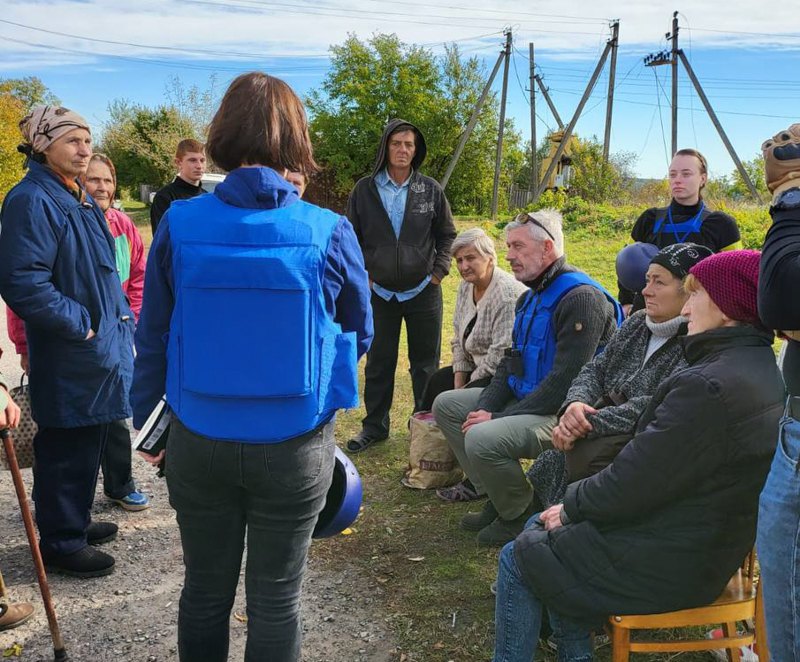
However, this does not mean that we are ignoring earlier crimes. You are absolutely right – such cases occurred during the occupation of Crimea and in the territories of Donetsk and Luhansk Regions. The difficulty lies in maintaining a unified record of such crimes from the beginning of the war.
Why is it so difficult?
Because of errors in the initial legal classification. Often, cases of conflict-related sexual violence were mistakenly recorded as cruel treatment, torture or were not identified as war crimes at all. We are now trying to locate earlier criminal proceedings in the occupied territories – Donetsk, Luhansk and Crimea – dating back to 2014, and we are reviewing all these materials.
Can we say that since 2022, the number of recorded cases of conflict-related sexual violence has increased?
Yes, the number of such cases has increased significantly. In the early stages of our work, mobile working groups visiting the de-occupied territories were our only source of information. Over time, however, the methods and scope of our work have expanded and become more robust.
For example, after the de-occupation of Kyiv Region – even before the establishment of a specialised department – the first inter-agency teams were already operating: investigators, prosecutors, psychologists. They travelled to affected communities, engaged with civilians and collected evidence of these crimes.
Following the de-occupation of parts of Kharkiv, Donetsk, Kherson and Mykolayiv Regions, this work became systematic. Working groups operated directly in active combat zones. We even evacuated victims of conflict-related sexual violence from dangerous areas.
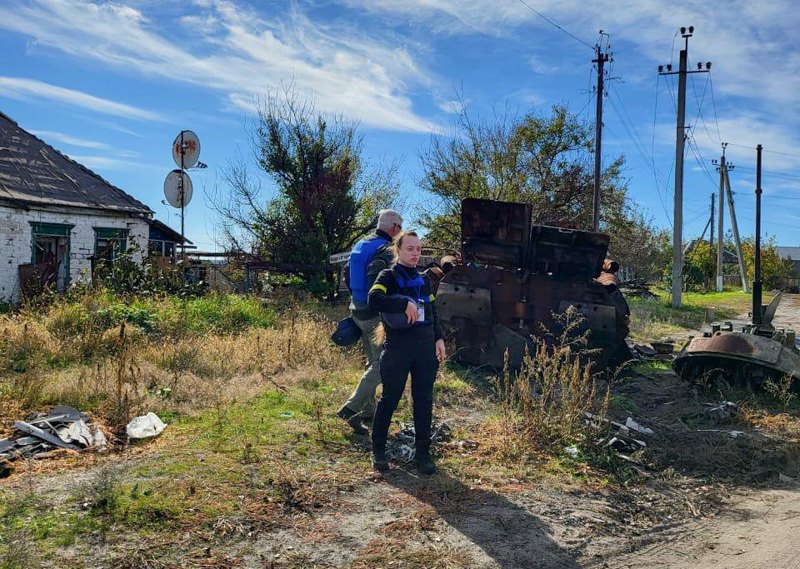
However, due to the changing nature of the hostilities – particularly the increased use of drone attacks – it is now virtually impossible to access certain settlements. For instance, in 2022, we were still able to conduct work in Lyman and Svyatohirsk, but today this is no longer possible. As a result, the primary source of information remains the direct appeals made by victims or their representatives to the Office of the Prosecutor General.
“The youngest victim was four years old, the oldest was 83”
What are the age and gender characteristics of the victims?
We do not have a clear demographic pattern – sexual violence as a method of warfare is used completely indiscriminately. The youngest victim was four years old, the oldest was 83. Among the victims are women, men and children.
This demonstrates that sexual violence is used as a tool of terror, humiliation and oppression, regardless of the age or gender of the victim.
It is known that many victims do not come forward because of fear, mistrust or trauma. What measures are you taking to encourage them to come forward?
Honestly, we do not need to take any artificial measures. Our best advertisement is the reputation and trust we have earned through years of systematic work. We work very closely with organisations that represent victims’ interests and with the victims themselves. They, in turn, pass on information and refer new people to us.
This is a very sensitive topic. People need to be confident that they will not be betrayed, exposed or pressured into anything. We guarantee safety, confidentiality and respect. And that approach works.
We understand that one of the main barriers remains a lack of awareness. That is why we actively conduct information campaigns – to tell people that we exist, that we have proven methods, and that we are applying entirely new standards for prosecuting crimes of conflict-related sexual violence.
In our work, we follow the international protocol for documenting CRSV crimes, adopted in 2017. It is based on the principles of the Murad Code. Nadia Murad is an Iraqi human rights activist and Nobel Peace Prize laureate who survived sexual violence during the Yazidi genocide. Her organisation has developed standards for ethical engagement with victims, and we are actively applying these approaches in Ukraine.
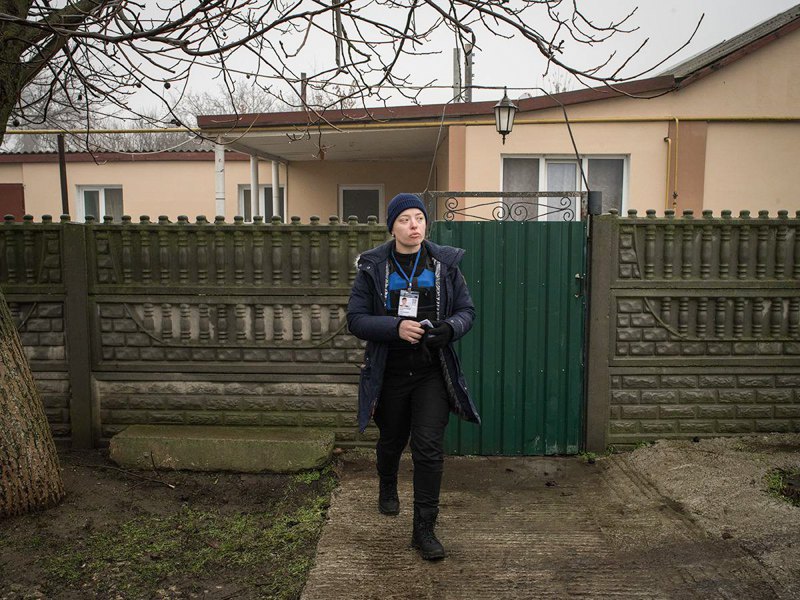
How do you combat mistrust of law enforcement agencies, one of the main obstacles to reporting crimes?
That is a very important question. We recognise that trust in law enforcement agencies is often low in Ukrainian society. But this can only be changed by example. We show victims that the system is evolving.
Most importantly, we do not treat people merely as a “source of information”. We place them at the centre of the pre-trial investigation. Their participation is not a duty, but a right. Only they decide whether they wish to be involved in the process, to what extent, and whether they are willing to continue cooperating with us.
From the outset, we make it clear that it is perfectly acceptable for someone to say at any point that they are not ready to proceed. And we respect that.
Support for victims: how the Coordination Centre operates
Is there a centralised body to support victims and witnesses of such crimes?
Yes. In 2023, the Office of the Prosecutor General established a Coordination Centre to support victims and witnesses of war crimes, including CRSV. These are not prosecutors, but civil servants who act as a bridge between the individual, the prosecutor and the investigator.
Their task is to gather information about the needs of victims and liaise with both governmental and non-governmental organisations to ensure that these needs are met as effectively as possible. This may include legal assistance, medical and psychological support, the restoration of documents, or help with housing for those who have fled the occupied territories.
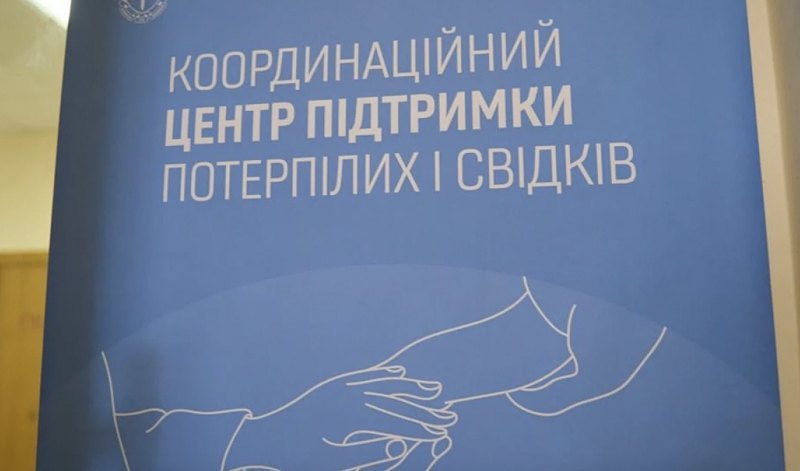
So these functions were previously performed by prosecutors and investigators themselves?
Exactly. Prior to the establishment of the Coordination Centre, all these responsibilities – from organising procedural actions to handling everyday concerns – fell to investigators and prosecutors. This created an enormous workload. Thanks to the Centre, we are now able to concentrate more effectively on legal work, while our colleagues provide comprehensive support to victims.
Is rehabilitation available not only in Ukraine but also abroad?
As for medical care, yes – it is provided, but currently only within Ukraine. The Coordination Centre has signed memoranda with leading institutions, including a rehabilitation centre with which we also cooperate directly.
This is a modern facility with excellent doctors, psychologists and high-quality rehabilitation programmes. When individuals released from captivity arrive there, they undergo a comprehensive health and psychological assessment. This is of great importance – a person who has received rehabilitation is better equipped to participate in criminal proceedings as a victim.
We also maintain memoranda with non-governmental organisations. For example, the Andreyev family’s charitable foundation provides support for costly procedures that the state cannot finance. These include reproductive and gynaecological care, advanced medical examinations, dental treatment, and more. These organisations are true partners, and we remain in constant contact with them.
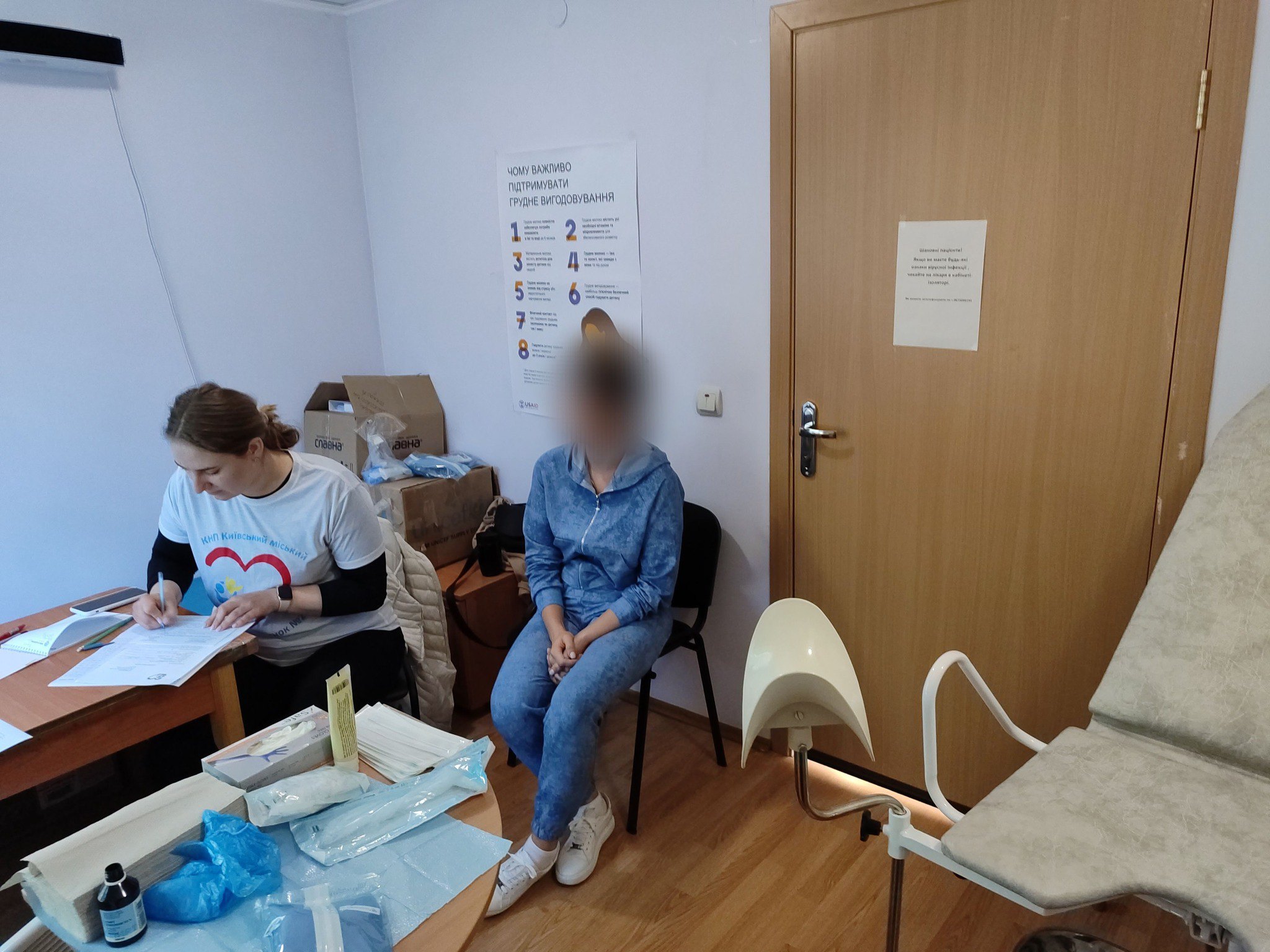
How to report a crime committed by Russian forces – the mechanism for anonymous applications
How can victims report CRSV crimes – is there a mechanism for anonymous reporting?
Yes, there is. And it is very important to note that over the years, we have built a strong reputation. Now, victims are referred to us by partner organisations and by those who have already gone through the process themselves. Entire communities exist in which survivors of sexual violence support one another and share information about how to seek help safely and confidentially.
Victims can apply anonymously – without providing personal data – and request that information be entered into the Unified Register of Pre-trial Investigations.
This can be done through a lawyer, a representative of a human rights organisation, or by contacting the Office of the Prosecutor General directly.
Does it have to be a personal appeal, or can it be done online?
We always emphasise that the best approach is to contact the Office of the Prosecutor General. This can be done in person – by visiting any prosecutor’s office and submitting a written statement – or remotely, by sending the statement via email.
There is also regional specialisation: in each Regional Prosecutor’s Office, at least three prosecutors – officially designated — have received specialised training in documenting and investigating CRSV crimes. They know how to work with the necessary confidentiality and sensitivity.
An information system is also in place: as soon as a new CRSV incident is recorded, the relevant Regional Prosecutor’s Office must immediately inform our specialised department, which then takes over the case.
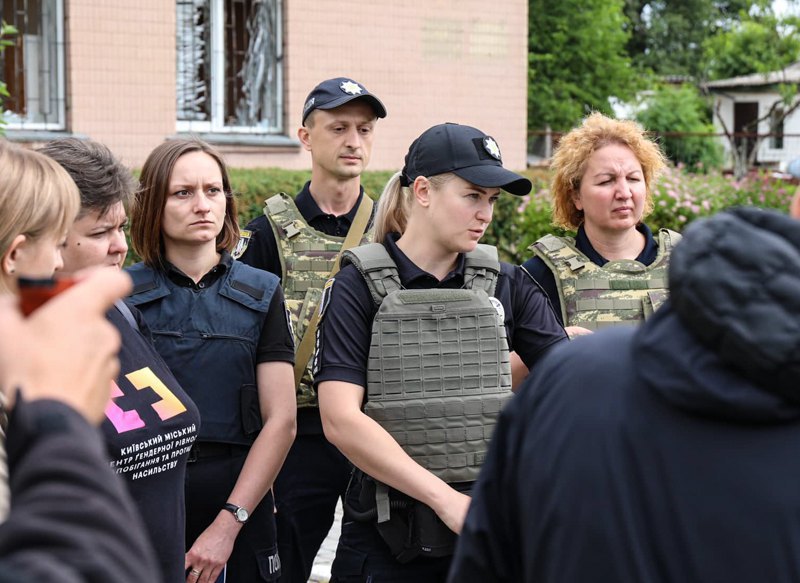
How detailed should the description of the violence be?
We do not require a detailed description. A single sentence is sufficient in the application:
“I, [name], have experienced conflict-related sexual violence. Please contact me. Here are my contact details. Please enter the information into the Unified Register of Pre-trial Investigations.”
That is all that is needed to initiate a criminal case. Our team will then contact the individual to determine how they would like to proceed and whether they require additional protection of their personal data.
In some cases, we replace real names with fictitious ones to ensure full anonymity. In extreme situations, we even arrange for the person to be moved to a safe location – we have both the resources and the procedures to do so.
“Stigmatisation of victims of sexual violence is a reality in Ukraine too”
How is psychological assistance provided to victims?
Together with the United Nations Development Programme and the Office of the UN Special Representative on Sexual Violence in Conflict, we are implementing the Victim Profiler project. This is a specialised training programme for psychologists who work directly with victims and provide post-traumatic therapy. After this training, psychologists offer individual recommendations to investigators and prosecutors. These recommendations cover every aspect of the process – from the wording and tone of questions to the gender of the investigator or prosecutor, and even the location of procedural actions.
The aim is to make the investigation as ethical, safe and trauma-sensitive as possible. And this approach has proven effective.
So your main strategy is not to pressure, but to create a safe space?
Exactly. Our strategy is not to force, but to support. Openness, transparency and complete confidentiality are what ultimately help to rebuild trust in law enforcement – at least in cases as sensitive as these.
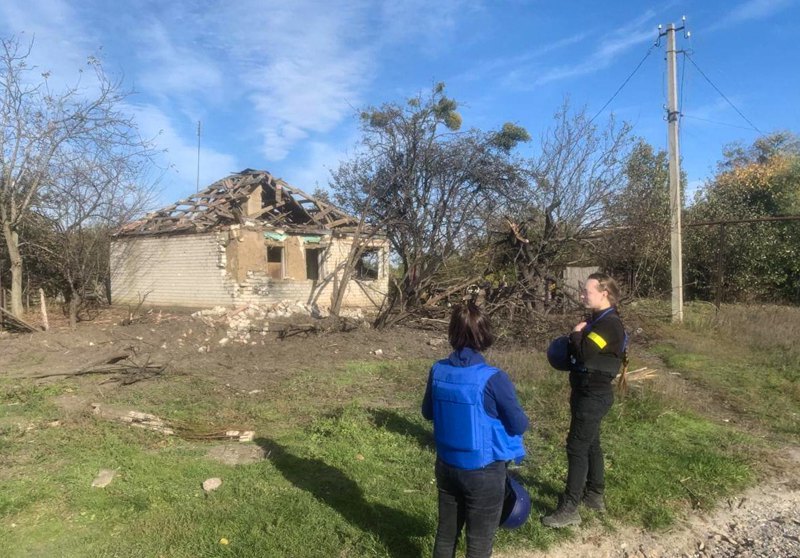
In a recent interview with LB.ua, Kosovar human rights activist Feride Rushiti said one of the main obstacles to investigating sexual violence in Kosovo was the stigmatisation of victims. She believes the same problem exists in Ukraine. Do you agree?
Yes, I completely agree. The stigmatisation of victims of sexual violence is very much a reality in Ukraine. At our request, USAID conducted a sociological study – unfortunately, its results were discouraging.
Persistent myths continue to circulate: that if a woman has been a victim of sexual violence, she might somehow be at fault – “she dressed provocatively,” “she attracted too much attention,” or “why didn’t she leave the occupied territory in time?”
These are deeply entrenched misconceptions. That is why we must engage not only with victims, but with society at large. We need awareness campaigns and educational initiatives to challenge and dismantle these harmful narratives.
How exactly can this be implemented in practice to change attitudes in society?
I am very impressed by the approach taken in Japan’s education system. There, from kindergarten, children are taught – through simple, relatable examples – what personal boundaries are, what compassion means, and why a victim is never to blame. This must become a basic cultural norm.
Unfortunately, our society still carries the legacy of so-called “Soviet victimology”, a theory that sought to explain crime by analysing the victim’s behaviour – essentially, by looking for what the victim “did wrong”. This is entirely misguided. The cause of violence should not be sought in the victim, but in the mind of the perpetrator – because it is he who makes the decision to commit the crime.
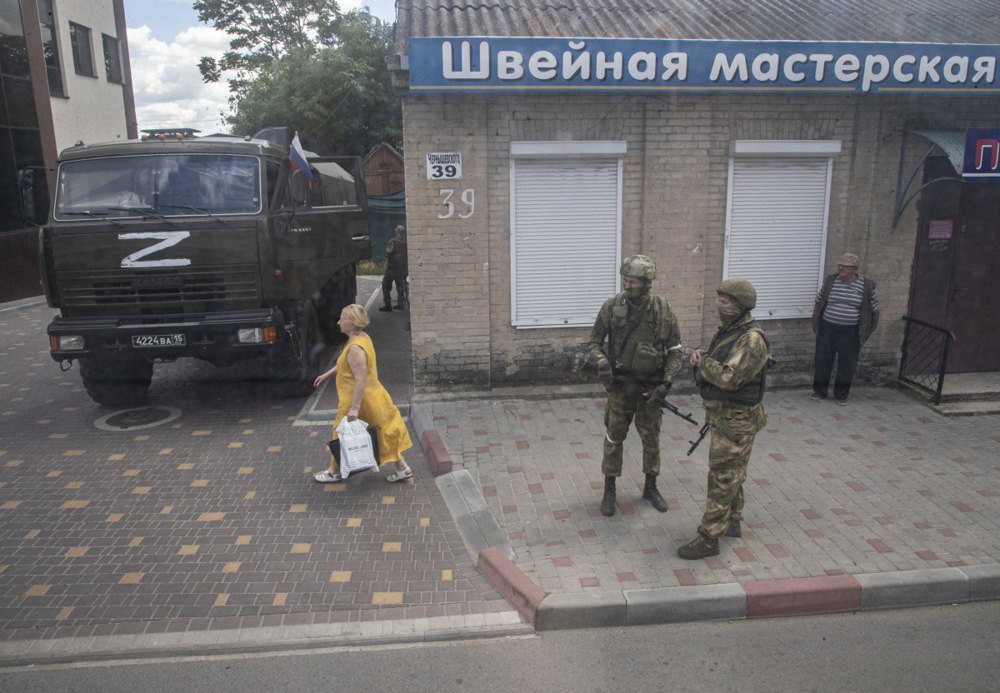
And this is the core message we must convey to society by every possible means – through the media, through education, and through cultural initiatives.
There are documented cases in which commanders personally committed acts of sexual violence. In some cases, they ordered their subordinates to “relax”
Is it also important to explain that sexual violence is not just about rape?
This is absolutely critical. Many people mistakenly believe that sexual violence refers solely to sexual intercourse. But this is far from the truth. In our experience, most of the crimes fall under other forms of sexual violence – including sexualised torture, genital beatings, forcing individuals to witness the rape of a loved one, threats of sexual violence, and sexual abuse during interrogations or captivity.
Most of these acts are extremely traumatic. Sadly, society is often unaware that such crimes exist – let alone understands their scope or consequences.
The psychology of a criminal during wartime can be ingeniously cruel. And we must speak openly about these realities so that society acknowledges and recognises them.
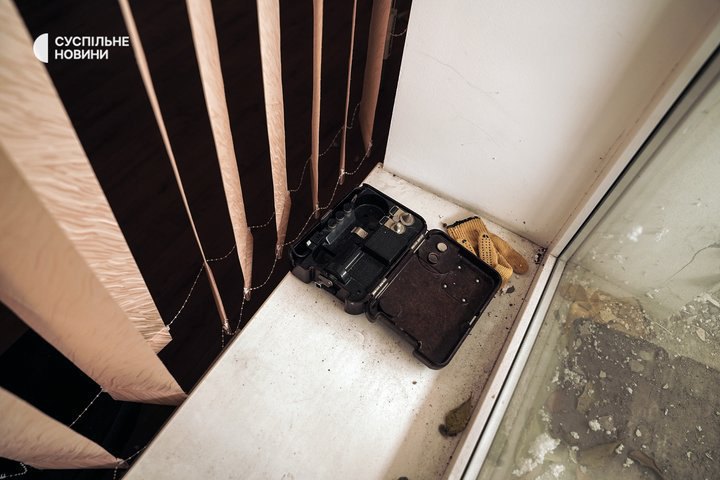
Why, in your opinion, do such crimes occur repeatedly during wars, across different conflicts and countries?
I have asked myself this question many times. And if we speak specifically about Russia’s war against Ukraine, this is not simply a military conflict – it is a civilisational confrontation.
We see that violence has been normalised in the ideology of modern Russian society. This includes the justification of domestic abuse, stigmatisation of LGBT communities, brutal militaristic rhetoric, and the systemic degradation of women. This is not an exception – it is embedded in the system.
In such a culture, sexual violence is not merely “tolerated” – it becomes an accepted tool of humiliation, control and terror. War crimes, including sexual violence, are not random – they are the outcome of deliberate, systematic dehumanisation of the enemy.
You say that sexual violence is used by the Russian military as a method of subjugation. Why this particular tool?
Because everything ingrained in Russian ideological culture surfaces in times of conflict. We are dealing with a society that has never truly embraced the values of civilisation. In that environment, violence is the norm – a method of communication, discipline and control. What is accepted internally is projected externally onto the enemy.
Sexual violence becomes a weapon of subjugation of the civilian population, a method of humiliating prisoners of war, a way of demonstrating domination and inhuman superiority. This is rooted in psychology – the psychology of a colonial, aggressive and dehumanised society.
Have there been any recorded cases of Russian military commanders personally committing or ordering rape?
Yes, regrettably, we do have such cases. There are confirmed incidents in which commanders personally committed acts of sexual violence. In other cases, they issued instructions to their subordinates to “relax” – a phrase directly interpreted as permission for sexual violence. We are documenting all of this.
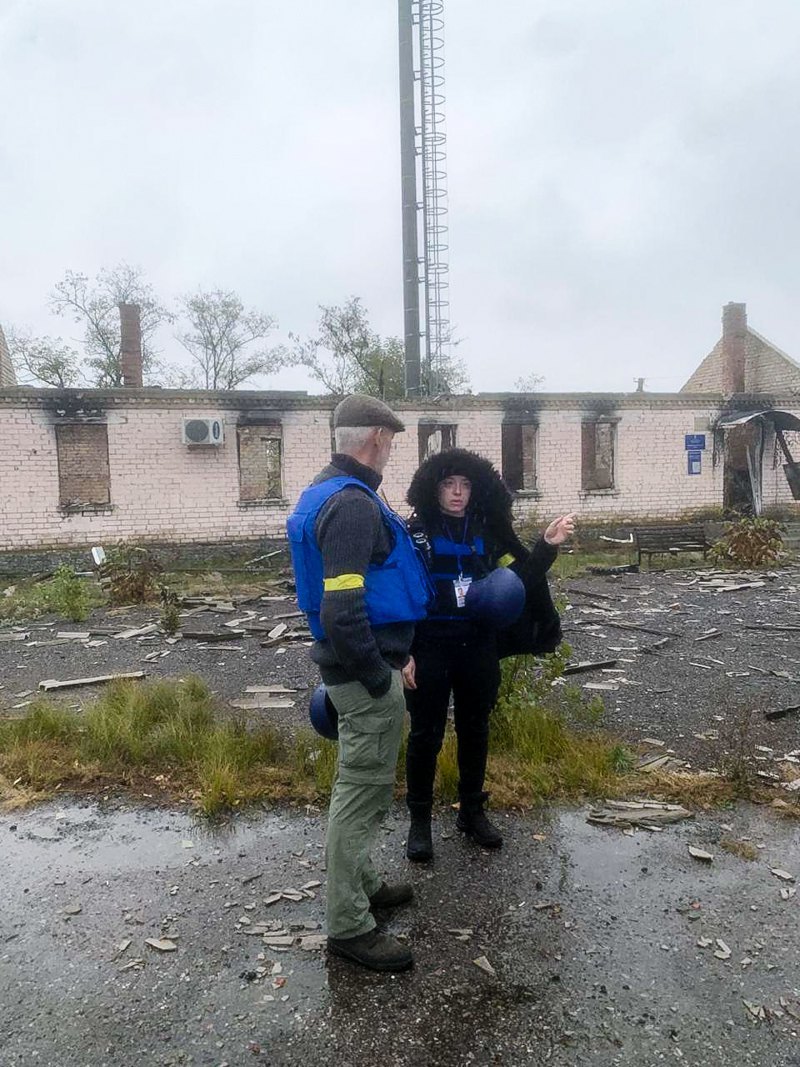
It is crucial to emphasise that sexual violence is not the result of “chaotic behaviour by individual soldiers”, as it is sometimes portrayed. These crimes are sometimes coordinated actions between commanders and subordinates. And yes, they are committed not only by rank-and-file soldiers, but also by officers and prison officials.
What are some specific cases involving Russian officers and prison administrators?
According to the Criminal Procedure Code of Ukraine, if a suspect is wanted and not present on Ukrainian territory, we are required to publish a notice of suspicion.
These notices are published on the website of the Office of the Prosecutor General. They are anonymised to protect the victims, but contain detailed descriptions of the circumstances of the crimes.
For example, one of our landmark cases involves the deputy head of Correctional Colony No. 7 in Russia’s Vladimir Region, Khatvetskiy. As deputy head of a facility within the Russian penal system, he not only gave direct orders to his subordinates to commit acts of sexual violence against Ukrainian prisoners of war and civilians, but also personally carried out these crimes on numerous occasions. All of this is comprehensively documented.
The longer a Region was under occupation, the more crimes we recorded
Which regions of Ukraine have the highest number of reports of CRSV?
Unfortunately, we cannot provide a complete regional picture at this time. About 18% of Ukrainian territory is still under occupation, and millions of citizens continue to live in complete isolation. This means that our data is based exclusively on visits to de-occupied territories.
Obviously, we have significantly more documented cases in regions such as Kyiv, Kharkiv, Kherson, Mykolayiv, and Donetsk, but this does not mean that crimes did not occur in other Regions. It is simply that it has not yet been possible to carry out professional documentation work there.
However, there is a clear correlation: the longer a Region was under occupation, the more crimes we record. And this applies not only to war crimes, but to the entire spectrum of military crimes.
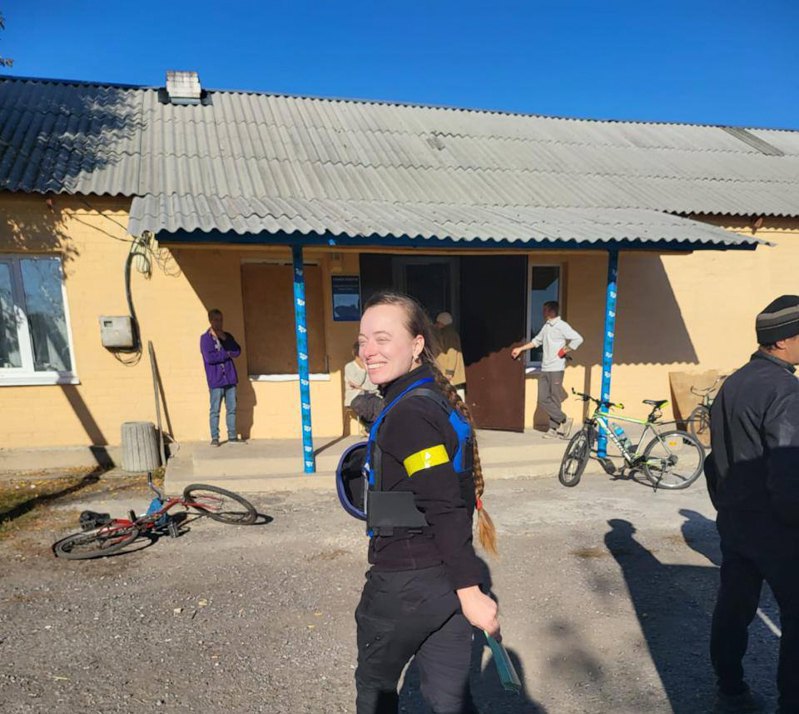
Only a few victims report crimes immediately after they occur. Most do so months or even years later
Which agencies directly investigate conflict-related sexual violence crimes? How is interagency coordination structured?
We have two pre-trial investigation bodies, depending on the context of the crime. The Security Service of Ukraine investigates cases of conflict-related sexual violence if the crime was committed in places of detention, i.e. against prisoners of war or civilians who were illegally detained in the occupied territories or in Russia.
The National Police of Ukraine investigates all other cases where crimes against humanity were committed against the civilian population during the occupation.
The Office of the Prosecutor General performs a coordinating function: it supervises compliance with the law, organises pre-trial investigations, ensures cooperation between authorities and supports public prosecution in court.
Have new guidelines for investigators and prosecutors on investigating CRSV been implemented yet?
Yes, since 2022, we have carried out a tremendous amount of methodological work. The Office of the Prosecutor General has an interagency coordination group, created jointly with the NGO YurFem, which also includes: UNDP, the EU Advisory Mission, the Office of the UN Special Representative on Sexual Violence in Conflict, Just Group, Global Rights Compliance, and many others. It also includes organisations representing the victims themselves, in particular SEMA Ukraine, Numo, Sisters, ALUMNI, and 29 December.
Together with these partners, we have already developed 10 guidelines that describe the typology of CRSV crimes and provide instructions for investigators and prosecutors. Together with UNDP and the non-governmental organisations YurFem and Just Group, we are preparing "Standards for the Pre-trial Investigation of Criminal Proceedings in Cases of CRSV," which are intended to serve as uniform methodological recommendations for both the prosecution and pre-trial investigation authorities.
In partnership with Dr Ingrid Elliot, an expert with the UK initiative to prevent sexual violence in conflict, and the organisation Global Rights Compliance, we are preparing mandatory rules for the organisation and conduct of pre-trial investigations in cases of this category – this will be an official inter-agency order between the prosecution authorities, the Ministry of Internal Affairs, the National Police and the Security Service of Ukraine.
The document is currently being reviewed and, once approved, will become a subordinate regulatory act that will require investigators and prosecutors to work according to uniform standards.
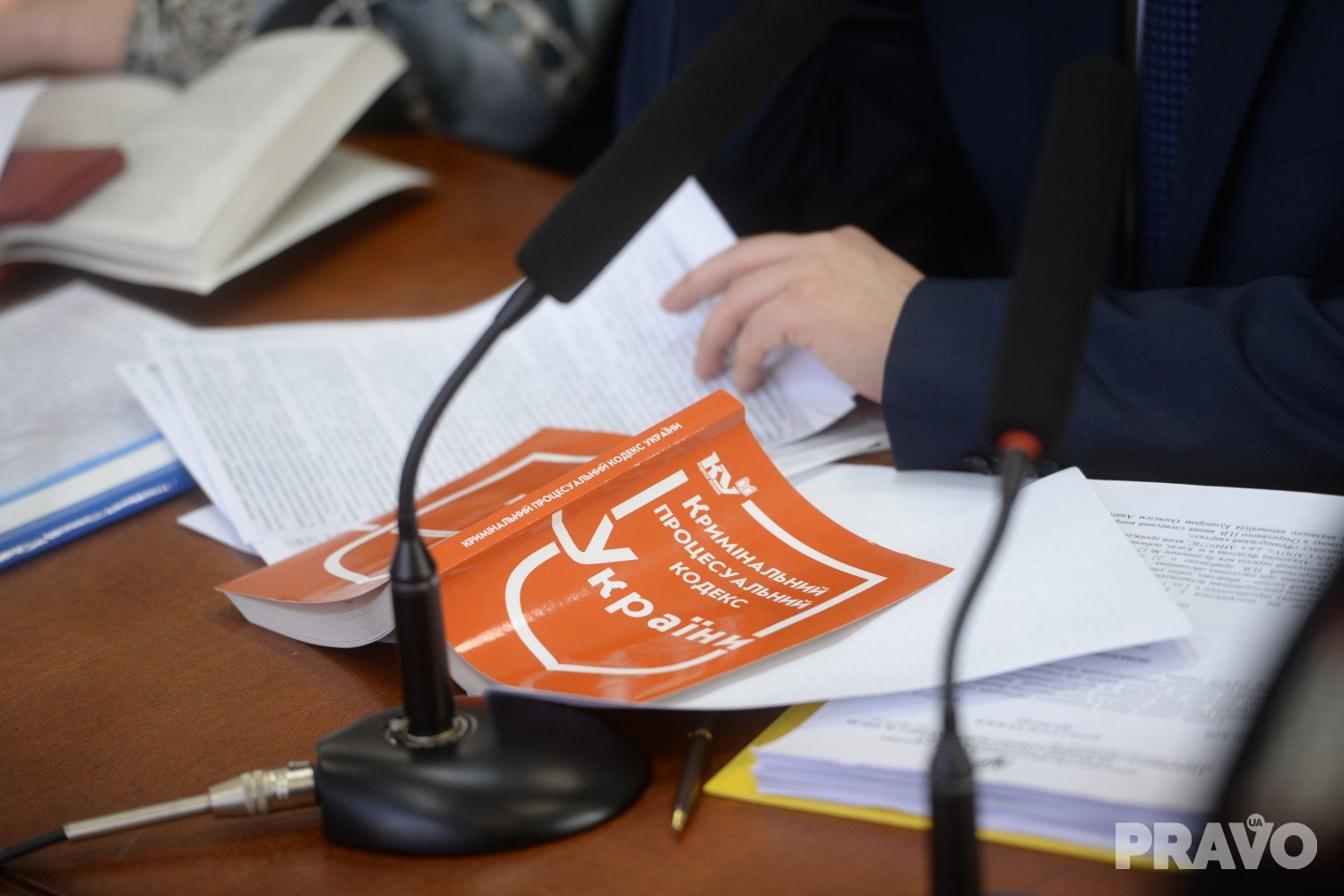
Do you plan to move away from the practice of numerous forensic medical examinations, which often re-traumatise victims?
Yes, and we are already in the process of moving away from this practice. We clearly understand that the classic Soviet approach– "no examination, no crime" – does not work here, because only a few victims come forward immediately after the crime. Most do so months or even years later.
Accordingly, we are implementing international standards of evidence, in particular the International Protocol on Documenting and Investigating Sexual Violence in Conflict (issued in 2017), as well as the rules of the Global Code of Conduct for the Collection and Use of Information on Systematic Sexual Violence Related to Conflict. These standards stipulate that the victim's testimony is sufficient evidence to open proceedings, and that expert examinations are only possible at the request of the individual and if the conditions are met.
Moreover, we already have alternative methods for collecting evidence: psychological profiles, surveys via confidential platforms, medical reports from the victim's place of residence, and, of course, evidence from third parties.
We strive to ensure that no one feels re-traumatised by investigative actions. And here, our duty is to put the safety, dignity and decisions of the person themselves at the centre of the investigation process.
Each case is unique and must be approached individually. The investigator, together with the prosecutor, determines which procedural and investigative actions should be taken.
If a long time has passed between the commission of the crime and the person's appeal – 5–7 years – there is obviously no point in conducting a forensic medical examination that will not reveal any physical traces. At the same time, conducting such an examination may cause additional trauma to the person.
In such cases, we use forensic psychological expertise to determine the degree of psychological trauma suffered by the victim. This is perfectly acceptable evidence in criminal proceedings, less traumatic and more humane.
Also, according to the Code of Criminal Procedure, the victim has the right to submit evidence independently, and we accept such evidence. This can include screenshots of correspondence, personal diaries, material evidence, third-party testimony, etc. We consider everything in its entirety, because in criminal proceedings, no evidence has a predetermined weight.
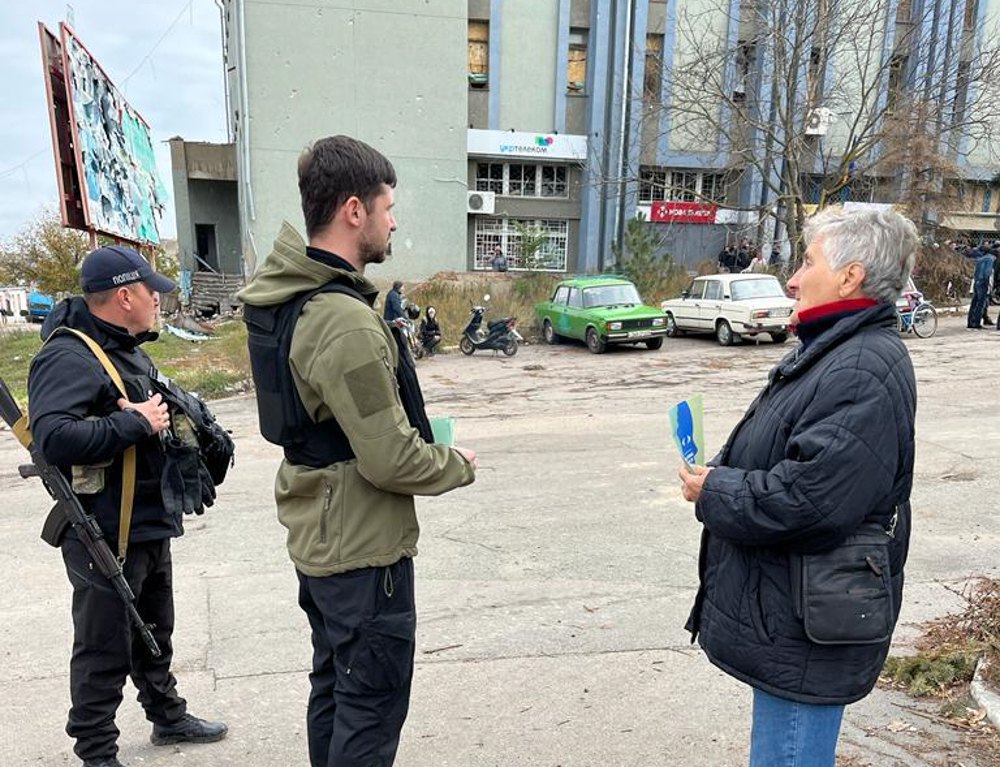
So, is a person's statement alone sufficient to initiate proceedings?
Absolutely. The fact of filing a statement is the starting point. A person is not obliged to "prove" that something happened to them – that is not their responsibility. This is the responsibility of the investigator and the prosecutor: to gather evidence, build a legal case, and formulate charges.
The statement is already grounds for entering data into the Unified Register of Pre-trial Investigations. The rest is the work of the investigation.
Persons who have committed crimes against humanity are not subject to exchange
Does your department cooperate with the International Criminal Court in cases involving CRSV?
Yes, we have established cooperation with the International Criminal Court (ICC) within our competence and in accordance with Ukrainian law.
It should be understood that the ICC has a different jurisdiction. Their focus is on the top of the political and military hierarchy, i.e. the "top-top" — senior officials, commanders, leaders who not only participated in crimes but planned, systematically organised or sanctioned violence.
Our legislation, in particular the CPC, contains provisions governing the interaction between the Office of the Prosecutor General and the ICC. If the court sends a request, we consider it and provide the necessary information within the limits of our competence.
This may include evidence, analytical reports, procedural documents — anything that may be useful for international justice.
In other words, we can assist in compiling materials that are then used as evidence by the ICC or its investigative teams.
I can assure you that cooperation is ongoing and we are interested in it. The more such crimes are recorded at the international level, the stronger our legal position will be.
On 25 June, an agreement was signed between the Council of Europe and Ukraine on the establishment of an international tribunal on Russia's crime of aggression. How will this affect the investigation of CRSV crimes and the prosecution of those responsible?
This tribunal will be specialised in the crime of aggression – that is, a large-scale international crime that encompasses the very fact of initiating, planning and waging an illegal war from its inception. This is very important because the crime of aggression, as a "parent" crime, entails other international crimes, war crimes, crimes against humanity, including conflict-related sexual violence.
However, we must understand that the tribunal for the crime of aggression is a separate mechanism and will not directly consider individual cases of isolated acts of sexual violence. But it can increase the overall pressure on the system and help establish legal responsibility from the state leadership to the perpetrators.
This is a matter of political and legal responsibility of the highest leadership of the Russian Federation, and in this sense, yes, it can be an important addition to existing national and international mechanisms for prosecuting crimes against humanity.
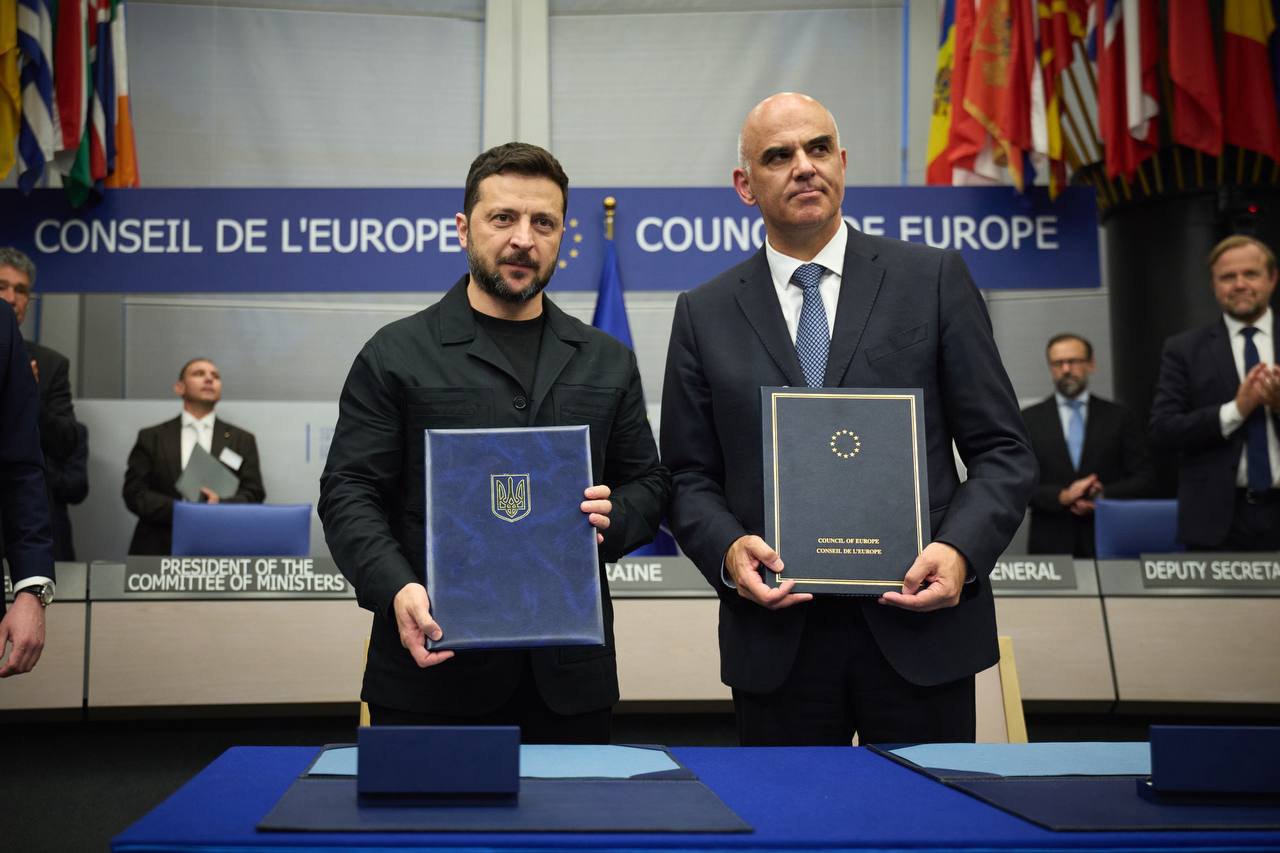
Is there a possibility that CRSV crimes will also be considered by this tribunal in the future?
We understand that the entire range of crimes related to aggression must be considered as a whole. If the prosecutor's office of the international tribunal can establish that sexual violence was used as an instrument of war, as a method of intimidation or punishment, then yes, these episodes can be considered as elements of the broader picture of the crime of aggression.
But even now, without a tribunal, we already classify CRSV within the framework of national jurisdiction not simply as isolated incidents, but as systematic, organised persecution of the civilian population or prisoners of war. In other words, these are war crimes, and in some cases these crimes can be considered crimes against humanity.
Speaking of national jurisdiction, how many cases of crimes of war crimes have been referred to court and at what stage are they?
At present, 85 servicemen of the Armed Forces of the Russian Federation have been notified of suspicion. Forty-four indictments against 57 Russian servicemen have been sent to court. And we have 18 people sentenced to imprisonment. Thus, we have 119 disclosed facts of crimes against humanity. But again, this information is as of the beginning of this month.
The figures are changing because there has been significant progress in pre-trial investigations and in the consideration of these cases in court.
To date, 11 have been sentenced to 12 years' imprisonment, 2 to 10 and 11 years' imprisonment, and in 5 other cases, the totality of criminal offences carries a sentence of up to 15 years' imprisonment, i.e. an average of 11-15 years' imprisonment.
Have there been any cases of exchange of Russian criminals who committed CRSV?
We do not yet have any Russian servicemen in captivity who have committed serious crimes against humanity. Therefore, we have not exchanged them, of course, because they are not physically present yet.
However, at the departmental level, we have an agreement that persons who have committed the most brutal crimes, i.e. CRSV, executions of prisoners of war, cruel treatment, torture, shooting of civilians, are not subject to exchange.
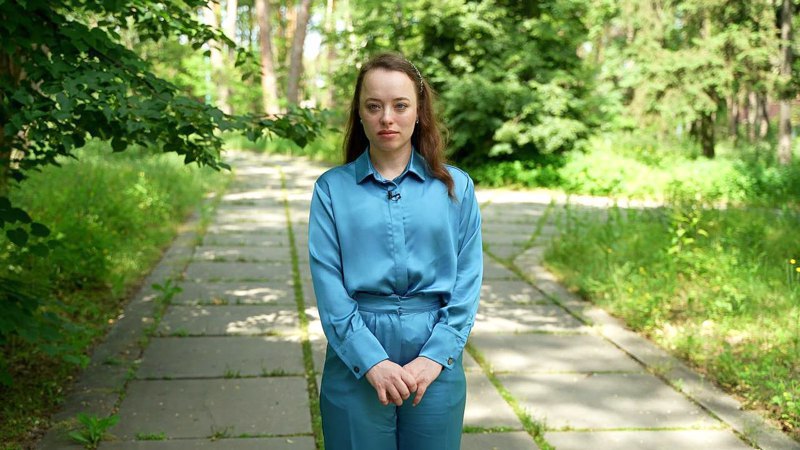
64 victims have already received emergency reparations of €3,000
In Kosovo, victims of sexual violence resulting from the conflict receive monthly financial assistance. Is there anything similar in Ukraine?
Yes. We have passed a law on the legal and social protection of victims of conflict-related sexual violence. The Office of the Prosecutor General was one of the key participants in its development.
Essentially, there are currently two mechanisms for obtaining reparations. Immediate (interim) reparations are one-time payments.
However, persons with procedural status as victims in criminal proceedings have the opportunity to submit information directly through the Office of the Prosecutor General to the Commission, which will be established under the Ministry of Social Policy and will decide on payments.
When it comes to immediate reparations, we are talking about a one-time payment of 3,000 euros. These are not funds from the state budget, but financial support from third-country governments – their symbolic gesture of support for the victims and condemnation of the actions of the Russian Federation. As part of a pilot project launched in October 2024, 64 people who had procedural status in criminal proceedings have already received these reparations. Another 40 people are awaiting payments. This project officially ended after the law on the protection of victims of the CRSV came into force on 18 June 2025.
We are ready to repeat this model as soon as the Ministry of Social Policy establishes the commission provided for by the new law. We will then initiate the introduction of a similar model of confidential information exchange, with the consent of the victim, to shorten their path to assistance.
In Ukraine, conflict-related sexual violence is recognised as a war crime with no statute of limitations. What does this mean in practice for you and for victims?
It means that the time factor does not limit a person in filing a complaint. As the experience of Bosnia and Herzegovina shows, it can take 10 or even 15 years. For me, as a prosecutor, this means that regardless of when a person comes forward – tomorrow or in a decade – their complaint will be registered and an investigation will be launched.








